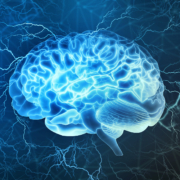What is a neuropsychological evaluation?
A neuropsychological evaluation typically involves assessment with a group of standardized tests that are sensitive to the effects of brain dysfunction.
Unlike CT or MRI scans which show abnormalities in the structure of the brain; or EEG, which shows electrical abnormalities in the brain; neuropsychological assessment is used to show the ways in which a person can or cannot perform certain functions or tasks that are dependent upon brain activity.
These functions or tasks (for example, memory and learning) form the necessary building blocks of successful living in the individual’s daily life.
Impairment in many of these functions may exist because of brain abnormalities that cannot be detected on CT or MRI scans. Therefore, modern neuropsychological assessment is a procedure with a unique purpose; it can be used to reveal or diagnose brain dysfunction when no structural brain abnormalities can be seen.
Furthermore, when structural abnormalities have been found, neuropsychological assessment provides a way to determine what functions may be impaired because of structural defects, and to determine the degree to which they may be impaired.
What is the purpose of a neuropsychological evaluation?
A neuropsychological evaluation is used to obtain several types of information. Reasons you have been referred for a neuropsychological evaluation may include, among others:
- To find possible problems with your brain functioning.
- To help lead to a diagnosis.
- To define your brain-related strengths and weaknesses.
- To guide treatment for your personal educational or vocational needs and make relevant recommendations to your other health care provider(s).
- To document possible changes in your functioning over time.
What tests are used?
The standardized tests used in a neuropsychological evaluation typically assess functioning in the following areas: attention and memory, problem-solving and other complex abilities, visual-spatial functions, language functions, sensory-perceptual functions, and motor functions.
Assessment of academic skill development and emotional functioning, while not exclusive to neuropsychological evaluation, is typically performed as well.
The perspective of the neuropsychologist is frequently requested to understand subtle brain-related factors involved in academic failure or impaired emotional functioning, even when no biological courses are suspected.
However, the specific areas assessed depend upon the referral questions presented.
An interview with the individual and/or family members is typically included. Observations in other settings, such as school or hospital, and review of school/medical records also may be included in the evaluation process.
What is the outcome?
The product of outcome of a neuropsychological evaluation is a conclusion or set of conclusions made about the individual’s functioning. If requested, the product also may include specific recommendations to guide treatment or otherwise enhance the individual’s functioning. The conclusions and recommendations are developed by integrating information obtained from the standardized testing, interviews, records, and other observations.
Interpretation of the test results and the information obtained from other sources is performed by the neuropsychologist, who is a licensed professional within the field of psychology with a specialty in the applied science of brain-behavior relationships. A neuropsychologist typically has a doctoral degree in psychology and additional training in the specialty field of clinical neuropsychology.









